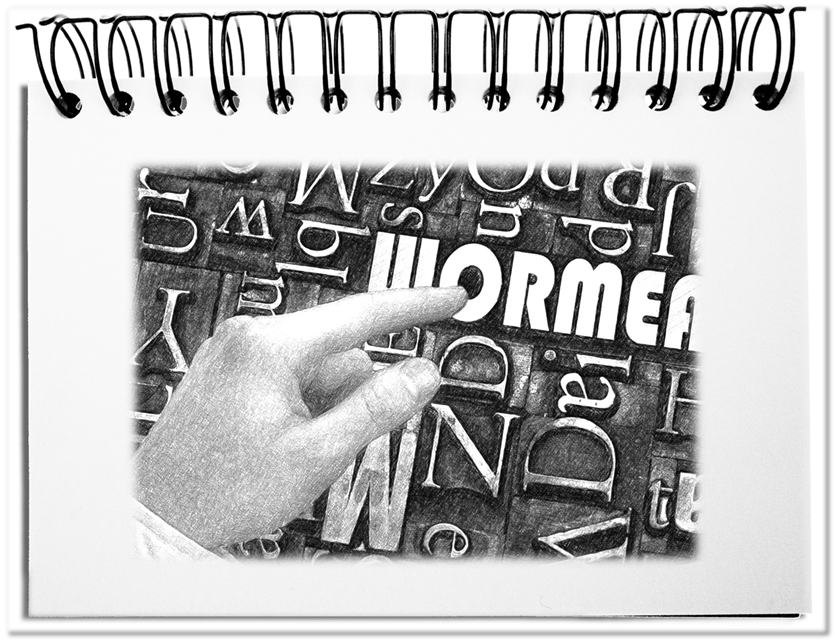Meaning is always arising through the conscious processing of words that someone disseminates. The scope used to be limited to people in the immediate vicinity. As a result, content was always surrounded by comprehensible cultural, linguistic and social context that made understanding easier. For centuries, the mass media have provided words from expert publicist to an ever-growing audience – via press, radio and TV. This led to a unified language and a press code that is committed to truth, reliability, and human dignity. At the same time, the art of interpreting content in a twisted way evolved, in order to manipulate the audience’s formation of opinion.
Through the Internet it is now again possible to exchange thoughts directly from one to the other without expert brokers – however, limited to the words used, which are internalized without additional context information as well as without hints on purposeful influence. As recipients of vast amounts of news, we assume that these messages mean exactly what we understand.
It is based on the fallacy of thinking that sentences and words mean something unambiguous. Perhaps we should be aware of the features of statements. This article deals only with written and spoken language – not pictorial representations. For the sake of simplicity, we speak of speakers and listeners, which also include writers and readers.
- A collection of words
Language delivers a series of words, which, more or less, follow grammatical rules. The speaker chooses the expressions from its vocabulary, with a little luck oriented towards its target group – the appropriate national language and an appropriate jargon. The audience receives the words and understands the meaning through their own language skills. The general assumption is that this leads to a far-reaching overlapping of meanings, which is very unlikely. - A variety of intentions
Each statement always contains several intentions: 1) Say what is; 2) Urge to (or not to) do something; 3) Disclose, to (or not to) do something; 4) Share, how you are feeling; 5) Announce, what applies. All this is in one sentence and is noticed according to the interest of the listeners. The following statement is drawn arbitrarily from the stream of news: A denies that B has two things: Experience and charisma. What does this include: 1) B lacks experience and charisma. 2) B is not acceptable. 3) A does not accept B. 4) A does not feel well with B. 5) B will not get it. Scan any sentence for the included messages. - Infelicity of the expression
A statement can be made with different words. And sometimes you get carried away with an awkward wording. Example is the statement “Reconcile the social with the national”. Despite the changed word order you become aware of the double sense. With the amount of other words one could have used, the question arises, to what extent this happened intentionally or unintentionally. - Who knows, what it actually meant
The message behind the words is not always clear, even with a conscious word choice. A statement can be meant as it is said. However, something can also be expressed without meaning it. Quickly, something is expressed that is meant differently. It is particularly frustrating, when you say something and nobody understands what was in your mind. For these reasons, an open, reciprocal discourse, with questions and answers, is always preferable to a one-sided proclamation.
Bottom line: There is reason to fear that there is no longer a common basis for expressing universally accepted facts. The real meaning lies in the eye of the beholder and its own opportunistic interpretation. Although the speaker thinks that it can control this, it is the listener, who processes the content and intention of an utterance. Today, all those, who have access to the Internet, can easily publish. This exacerbates the situation that opinions come into the world that deserves to be called alternative facts. The background is unknown and the contents are adopted uncritically. The fact checkers don’t help here. Direct exchange on the Internet is a new form of conversation, in which opinions are exchanged. In the interest of the freedom of expression, this must be allowed, even if the content is available worldwide without delay and reaches directly immediately vast numbers of people. We must learn to distinguish between personal statements and expert publications, as in everyday street conversations – even, if the differences are difficult to perceive. It is worth taking a look at the imprint of the publicists. There, a part of the context becomes visible or obscured and one recognizes who you are dealing with or not. If the imprint, the names of the authors, the address and the telephone number are missing, or if the contact address is a Freemail, or if the responsibilities are located abroad, the contents are questionable. In any case, there is simply no meaning per se.

